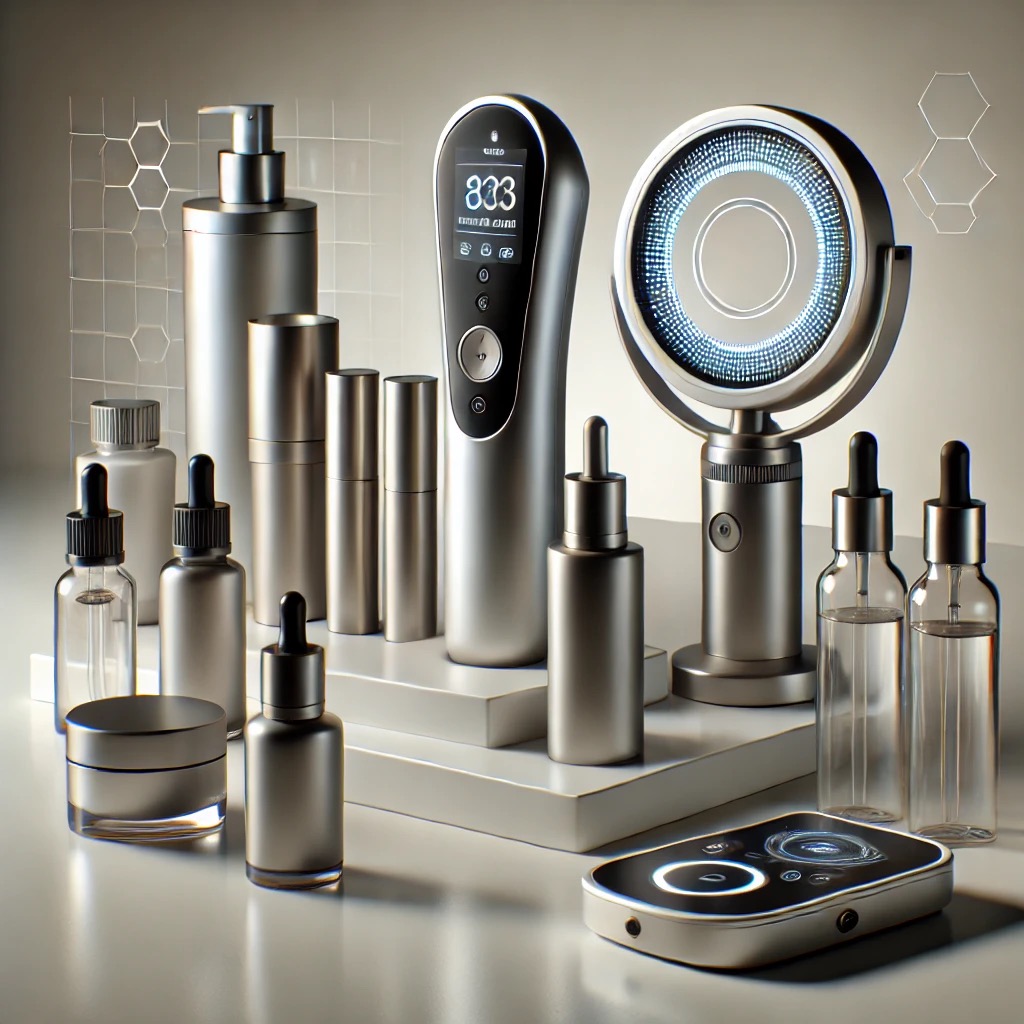High-tech skincare products are rapidly becoming a focal point in the beauty industry. With increasing consumer demand for immediate results and professional-grade skincare experiences, this sector is witnessing significant growth. Here are the key trends shaping the high-tech skincare market.
1. Popularity of Smart Skincare Devices
Smart skincare devices such as LED therapy tools, skin analyzers, and microcurrent facial devices are making their way into at-home skincare routines. These devices use intelligent sensors and algorithms to offer personalized care, helping users monitor skin conditions in real-time and optimize skincare steps. Examples include:
- AI-Driven Skin Analysis: Devices powered by artificial intelligence can measure skin hydration, elasticity, texture, and pigmentation.
- Multi-Functional Beauty Tools: Combining cleansing, infusion, and repair functionalities for comprehensive care.
2. The Rise of Microbiome Skincare
Microbiome skincare is becoming a major focus. Scientific studies reveal that maintaining a balanced skin microbiome is crucial for healthy skin. Brands are developing products infused with probiotics and prebiotics to restore the skin barrier, reduce inflammation, and boost immunity.
3. Nanotechnology Applications in Skincare
Nanotechnology is revolutionizing the effectiveness of skincare products. By nano-sizing active ingredients, products can penetrate the skin barrier more effectively. For instance:
- Nanoparticle Vitamin C: Offers greater stability and efficacy, delivering antioxidant protection deep into the skin.
- Nanocapsule Technology: Allows controlled release of active ingredients for prolonged skincare benefits.
4. Growing Demand for Personalized Formulations
Consumers are increasingly seeking personalized skincare solutions, including formulations tailored to genetic testing or specific skin conditions. Some brands provide customized skincare services based on user skin data, integrating precise nutrients and active ingredients into their products.
5. Sustainability and Eco-Friendliness
With growing environmental awareness, consumers are paying more attention to product sustainability. Plastic-free packaging, biodegradable formulations, and carbon-neutral manufacturing processes are becoming standard features of high-tech skincare brands.
6. Data-Driven Digital Skincare
Digital technology is helping brands connect more effectively with consumers. Examples include:
- Skin Tracking Apps: Mobile applications that track skincare results and help users adjust their routines.
- Virtual Try-On Technology: Enables consumers to experience product effects online, reducing the risk of purchase decisions.
7. Asia’s Leading Role in High-Tech Skincare
Asia, especially South Korea and Japan, is seen as a global leader in high-tech skincare innovations. From developing new ingredients to designing advanced beauty devices, brands from these regions significantly influence global trends.
Conclusion
High-tech skincare products are shaping the future of the beauty industry. From smart devices to microbiome-focused formulations, these trends reflect consumers’ demand for more effective, sustainable, and personalized skincare solutions. Brands must continue to innovate and align technology with sustainability to meet the rapidly evolving market needs.





